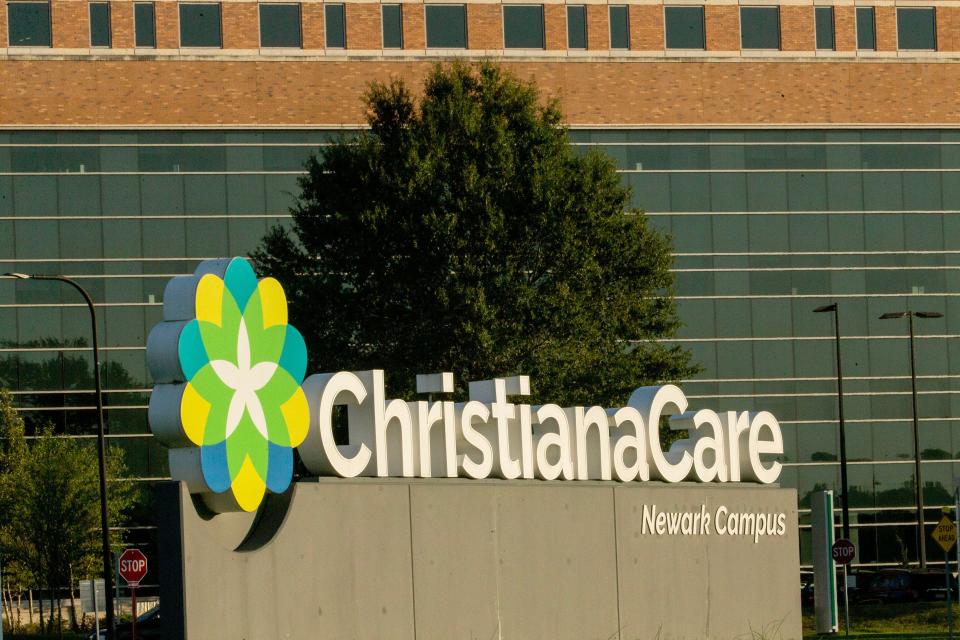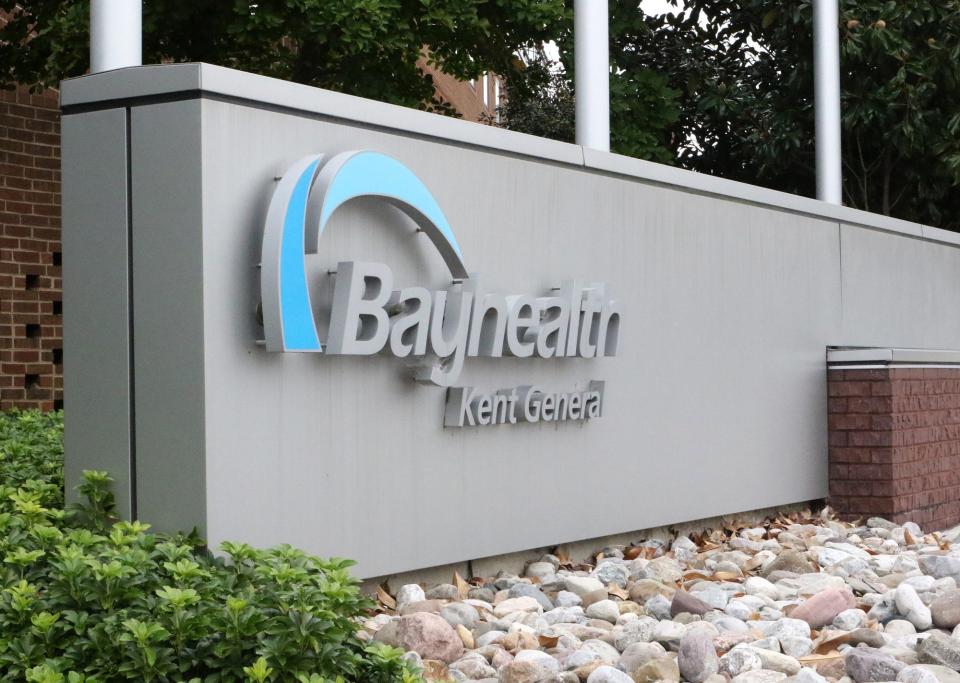A whistleblower lawsuit cost ChristianaCare $47M. Why are whistleblower cases increasing?
A former medical director specializing in neurosurgery at southern Delaware’s largest health care provider claims in a lawsuit that Bayhealth Medical Center misclassified “brain-dead” patients in order to overbill for services.
Dr. James Mills, a New York resident who worked for the health care center from 2011 to 2020, claims in the lawsuit he lost his job at Bayhealth for blowing the whistle on fraudulent billing and is seeking employment compensation under Delaware whistleblower protections. He also is asking for civil penalties under the federal False Claims Act. Bayhealth denies the allegations.
Mills’ lawsuit comes as ChristianaCare recently agreed to pay more than $47 million to settle a nearly 7-year-old whistleblower lawsuit alleging illegal kickbacks, a settlement amount believed to be the largest in state history derived from False Claims Act litigation.
These matters come as settlements and judgments nationwide under the False Claims Act exceeded $2.68 billion in the last fiscal year, according to the U.S. Justice Department. Some suggest the increase in such legal actions has less to do with an increase in fraud and more to do with workers being willing to speak out.
"Think of it this way," said Kyle Welch, George Washington University School of Business associate professor of accountancy. "Why did the [#MeToo] Movement happen? It's clearly because those that had been abused felt comfortable speaking about it. It wasn't because we had a spike of abusers.
"Employees know they can speak up about problems, they also are more aware of the taboo around retaliation which is one of their biggest fears."
This is why Welch said it's important for companies to have strong internal reporting mechanisms.
Of the $2.68 billion in settlements and judgments, the Justice Department said $1.8 billion involved the health care industry. This includes managed care providers, hospitals, pharmacies, laboratories, long-term acute care facilities and physicians. Many of these cases also resulted in additional money recovered for state Medicaid programs.
A case for internal reporting
There absolutely has been an increase in whistleblowing, Welch said.
In particular, the United States has had a long history of people speaking up when they see something wrong. Two laws financial regulation laws passed by Congress to fight corporate fraud and improve transparency have opened the door for more cases: Sarbanes-Oxley Act and Dodd-Frank Act.
There are a number of government programs including Dodd Frank, that actually provide payment to people for reporting.
"As an example, Facebook faced a whistleblower concerning internal studies the company did on the effect of social media on teenagers," Welch said. "They didn't disclose any of the negative findings, and an employee decided to blow the whistle...only after creating a security's fraud lawsuit with the SEC."
In his study, Welch said that internal whistleblowers are crucial to keeping firms healthy. The average manager seems to take these reports seriously and uses them to learn and address issues early, before they evolve into larger, more costly problems.
Welch said there are industries that promote internal reporting a lot more. These are usually highly regulated industries like health care, defense contracting or banking.
"When it comes to uncovering fraud or problems in an organization, people are the primary solution," he said. "We want people to speak up, but the laws have also created some odd situations where it seems the financial incentive is a key driver."
ChristianaCare's costly settlement
In December, ChristianaCare agreed to pay $47.1 million to settle a nearly 7-year-old case that started after a whistleblower came forward alleging kickbacks and other violations at Delaware's largest health system.

The settlement, which includes no admission of liability by ChristianaCare, brought an end to charges of a "kickback scheme" registered by the health care systems' former chief compliance officer, Ronald Sherman. In his lawsuit, Sherman claimed that between 2010 and 2014 the hospital system engaged in a "kickback scheme," by allowing doctors from a private practice called Neonatology Associates to bill insurances, primarily Medicaid, for care that had been provided by the hospital's own staff.
Shane Hoffman, ChristianaCare's communications director, said that following a favorable judgment by the court, which dismissed a portion of the claims, they were pleased to settle the matter as they focus on meeting the needs of the communities they serve. According to Hoffman, that judgment was the court concluding that Sherman had not established ChristianaCare caused private physicians to submit false claims.
"Thereby dismissing those claims from the litigation," he said.
But that appears to be engineered by Sherman's attorney, Daniel R. Miller, who said he was trying to move forward between an issue stymying ChristianaCare and the federal government.
Given that Sherman's legal team had not litigated whether ChristianaCare had caused physicians to submit false claims, Miller said it occurred to him a few things needed to happen:
ChristianaCare file a motion for summary judgment on that issue.
Sherman and the government would not oppose the motion.
The court had to grant the motion.
"And that's exactly what happened," Miller said. "After a hearing before the judge on Nov. 15, 2023, during which the parties explained this proposal, Christiana filed a narrow motion, [Sherman] didn't oppose it and the Court granted it, all on the same day.
"As you can see, this was a plain and simple workaround, and it takes nothing away from the core allegation in the complaint that ChristianaCare provided free employees to private physicians in violation of the anti-kickback statute ...."
Bayhealth's whistleblower case
Bayhealth's court response to the lawsuit filed in September generally denies the allegations, that any fraud occurred and claims Mills is not entitled to legal relief. It further states that Mills' termination was not improper or retaliatory but based on "legitimate concerns" involving his interactions with other physicians, failure to follow protocol and clinical concerns.
Bayhealth officials declined to comment for this story citing the pending litigation.

The lawsuit was filed on Mills' behalf by New Castle County-based labor and employment litigator Michele Allen, who did not reply to an email seeking comment for this story.
After approximately three years of employment, Mills was named medical director of Bayhealth Neurosurgery in 2014 and received positive performance reviews leading to 2017, according to court records.
That spring, he and other hospital officials discussed a "new hospital initiative" in which suspected "brain-dead" patients would be discharged and admitted to hospice before any declaration of brain death, according to the lawsuit.
The scheme allowed for prolonged billing where previous billing ended with the patient’s death, the complaint states.
It adds that Mills felt this practice to be fraudulent and "strenuously objected."
His performance evaluations said he was "unwilling to implement the initiative as he stated it was fraud," and he reported his belief to multiple supervisors and administrators.
The lawsuit claims he was demoted to staff neurosurgeon in November 2018 in retaliation for his reports.
The following year, Mills was instructed to input billing records reflecting the highest level that could be billed for inpatient consults, regardless of the service rendered. He was further instructed to pick up one consult a week to bill at a lower level to “avoid red flags,” according to the lawsuit.
This involved using new documentation and longer office and progress notes that added information and services provided that never actually occurred, according to the lawsuit.
Mills' lawsuit claims he blew a whistle on these practices up to at least one vice president-level administrator.
When he refused to participate, the hospital withheld patients from Mills' care and eventually led to Mills’ termination in June 2020, the suit says.
How whistleblowing can pay off
The False Claims Act aspect of the litigation draws upon a unique aspect of federal law, as well as comparable state law, that allows people to report suspected fraud committed against the government and then take a cut of whatever is recovered through the litigation.
The act states that any person or entity that knowingly submits false claims to the government is liable for three times the government's damages plus a penalty associated with inflation. Such claims that arise from whistleblower complaints like Mills can see the whistleblower awarded a significant chunk of the government's recovery.
In the recent ChristianaCare settlement that arose from a False Claims Act whistleblower lawsuit, the original whistleblower was the former chief compliance officer for the hospital system. His portion of the $47 million settlement is more than $12 million, according to court documents.
Becoming a whistleblower
Lawyers in this space will always tell you that they need to be hired, according to Welch, the George Washington University associate professor.
"I don't believe it's the case," he said. “Most businesses, most managers want to do the right thing just like most people that blow the whistle want to do the right thing."
Some lawyers are very adamant that you need to hire a lawyer before you blow the whistle. This is because every case we hear about when it comes to whistleblowing is the exposure to failures. We only hear about the stories where somebody blew the whistle and it makes the news or becomes a lawsuit, Welch said.
Many people blow the whistle and their firm or manager has an appropriate response. The experience these law firms have is with the worst actors in these cases. It's the equivalent of judging what it's like to drive a car by only sitting in the emergency room of a hospital.
If someone is concerned about reporting something and having vocational consequences, nearly every organization has the option of reporting tips anonymously. If someone is concerned about the response they're going to have they should report it anonymously.
What a potential whistleblower does, or doesn’t do, can have a significant impact on the ultimate outcome of their case, as well as on your future, according to the Whistleblower Law Collaborative, a Boston law firm that represents people involved in False Claims Act cases.
Here are some tips from the Collaborative:
Know your rights. The Collaborative suggests potential whistleblowers contact an attorney experienced in this area.
Beware of separation or severance agreements and releases that employers typically require a terminated employee to sign in return for severance pay and benefits. These agreements sometimes contain provisions where the employee releases the employer from some or all claims the employee may have.
Think twice before complaining internally about the fraud because in some circumstances in may result in retaliation or termination. Where fraud is ongoing, the Collaborative said it can be more valuable to the government if a person stays quiet and gathers information as an insider.
Preserve the evidence, either by retaining or backing up the data. The Collaborative said conversations may be fresh in your mind now, but these cases can last years so make a contemporaneous record of what happened, who said what to whom.
Be prepared for the long haul. Whistleblowers who have the most difficult time with the process are those expecting quick and decisive results. The Collaborative reminds people that despite protections under the law, whistleblowers have very little control over the process. The government is the real party in interest in False Claims Act cases, and its attorneys control the status of the case, not the lawyers for the whistleblower.
Contact Xerxes Wilson at (302) 324-2787 or xwilson@delawareonline.com. Follow @Ber_Xerxes on Twitter. Send tips or story ideas to Esteban Parra at (302) 324-2299 or eparra@delawareonline.com
This article originally appeared on Delaware News Journal: Whistleblower lawsuit cost ChristianaCare $47M. Why cases are surging

